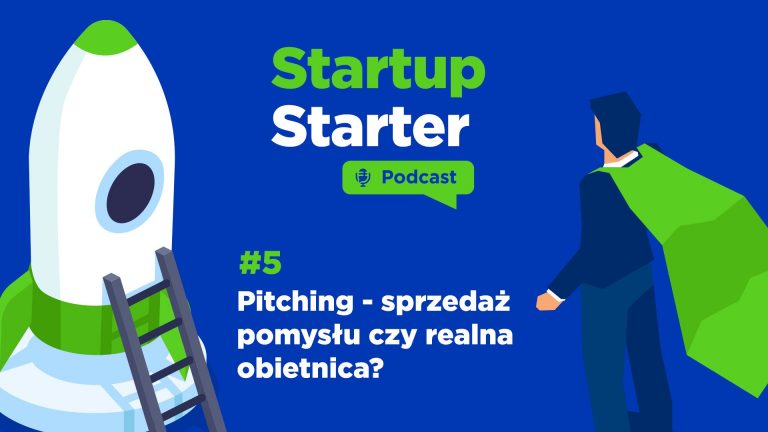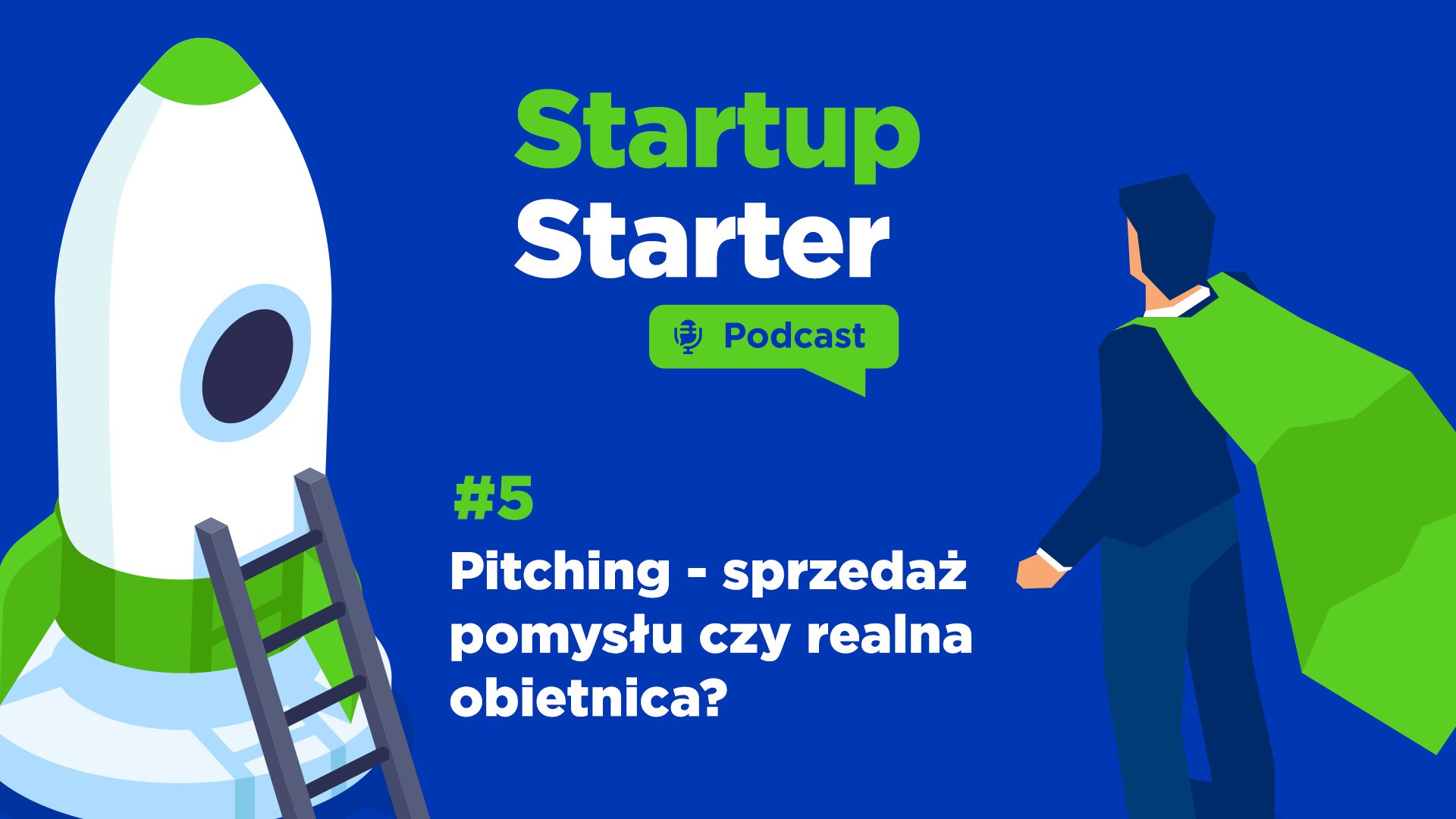In this episode you will find out:
- how to verify your idea with a client at zero or minimal cost and successfully sell your startup without promising a falsehood
- when the startup is ready to present its idea
- how to adjust your pitch depending on your goal and audience
- what are the most common mistakes made during pitching
There are two questions that a startup should answer: the first one: when to start presenting, and the second: when to start presenting to an investor. Our expert has clear answers: you should start presenting as soon as possible, but to investors you should your startup as late as possible.
The business model is a set of hypotheses, and the founder’s task is to verify them. Importantly, there is nothing wrong with the fact that they turn out to be wrong – according to Zbigniew, negative feedback is great information that protects us from developing a product that will not finally sell. A startup should constantly search for its business model, change its assumptions, and adapt it in accordance with the feedback collected from the market. There are many questions to which an innovator has to find answers: who is my client, what is the problem, what solution do I have, is it correct, will the client pay for them, how much will he pay for them, what costs will I expect.
Show the product as soon as possible
According to Zbigniew, it is wrong, and even harmful to the startup ecosystem, to think about financing as the key and necessary verification to the basic hypotheses of our business. He emphasizes that you do not need to have a finished product before you go to the customer, you do not have to start by spending a lot of money before you release it to the market, because the sooner we show the product to the customer, the easier, more efficient and better we will adapt it to the needs of the target group.
A few seconds – a few minutes, not longer. This is how long pitching takes. It is about interest and arousing the curiosity of our recipients, so that they would like to know the details of our business. Our expert emphasizes that the most important thing is merits: to understand the problem and explore the client’s need. There is no simple scheme for a pitch, to make it “sound well” we have to understand the client and then propose a solution to the selected problem.
Pitching a pitch deck
We verify the business with the client, we show the investor the verified business – this difference is very important. Therefore pitching is one thing, and a pitch deck is another thing, i.e. a presentation for an investor. It is a short presentation of a value proposition, a description of a problem, market, potential customers, marketing and sales strategy, team, growth plans or information about already acquired customers. A lot for a presentation with ten or dozen slides. However, you need to be properly prepared for the conversation with the investor.
What about the aesthetic sphere? Certainly, the pitch deck must be very readable and accessible, but what matters most is the content.
Our expert points out many mistakes made by startups. In the first place he mentions starting their activities by creating a pitch, and then “inventing the market” for the product – it should be quite the opposite. Another problem is the preparation of too long presentations and the use of a trade language that is incomprehensible to the recipient.
Check your investor
In the context of investor relations, Zbigniew points out that we should verify who we are sending our pitch to, know what the focus of a given investor is, whether he is interested in projects of our type. He advises against sending the pitch deck to the fund’s general address, because in his opinion it usually does not work. According to our expert, investors are also deterred from projects by the requirement to sign an NDA with high contractual penalties – after all, investors are not looking for ideas to implement on their own but teams that will run the business and earn money on it – for themselves and for them.
When asked for one, the most important piece of advice for startups, Zbigniew firmly replies: talk to clients, follow them, listen to them. They will tell you what they need and how to communicate with them.
Startup Starter – knowledge, inspiration, advice. Podcasts
Are you running a startup? Do you want to develop your business, are you looking for knowledge, inspiration and expert advice that will help you prepare for the upcoming challenges? Startup Starter will answer these questions. Podcasts will be published every Thursday from April 15 this year.
You can listen to our podcast on:





